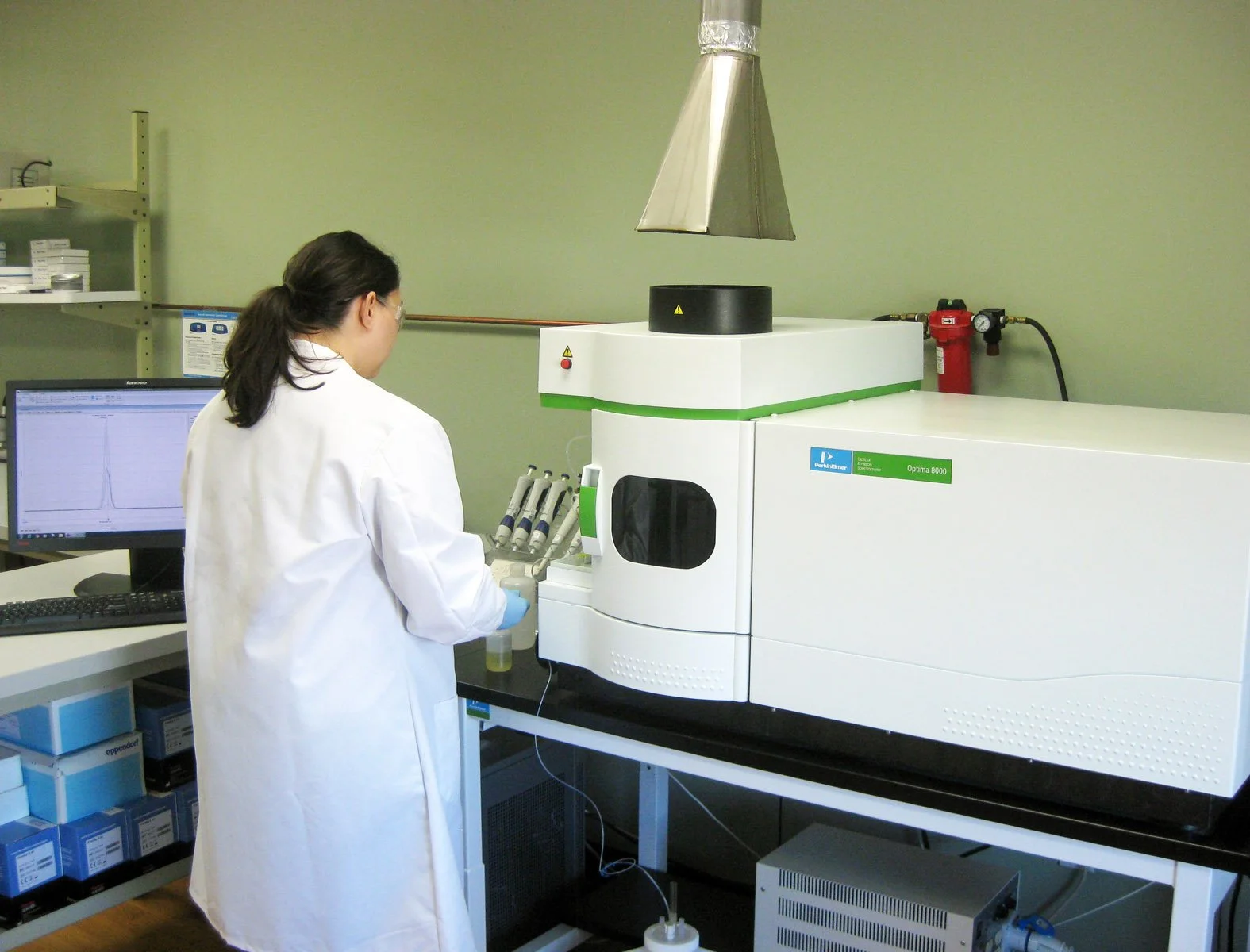Cement & Lime
With fully-equipped physical and wet chemistry laboratories, our staff can help determine the suitability of binders for use in historical masonry. We understand the need for compatibility and can support your efforts with accurate performance data.
-
Historical Expertise
The Americas are called the “New World” but our architecture contains a history of materials evolution from early indigenous technology, through Colonial expansion and the Industrial Revolution, and into the modern era. The variety of domestic and imported limes and cements represented in our building stock are surprisingly rich. Highbridge has enjoyed a unique perspective as geologists and chemists studying thousands of historical masonry samples, visited original mines to collect raw materials to recreate binders in the lab, and built a one-of-a-kind research library. Our staff are unrivaled in their expertise in the subject.

-
Performance Evaluations
Highbridge maintains a dedicated cement lab to evaluate the performance characteristics of specialty binders for use in the compatible repair and rehabilitation of historic structures. Testing includes the standard methods used for modern cements such as compressive strength, set time, flow, fineness, and autoclave expansion. Additional methods focused on the properties of historic masonry include water vapor transmission testing and absorption rate determination. We can assist if your specification requires compliance with ASTM C1713.
-
Cement and Lime Chemistry
Whether it is the magnesium content in limes that controls slaking and strength gain, or the silica and alumina that governs hydraulicity, the chemical composition of restoration binders has a critical influence on peformance. Highbridge's staff includes analytical chemists who are well-versed in quantifying the chemistry of these binders. In addition to traditional wet chemical techniques and equipment used to measure inorganic materials, the laboratory is also equipped with ICP-OES to accurately measure up to 70 elements from the periodic table in a single test run.

Test Methods for Cement & Lime
Cement and Lime Test Methods:
ASTM C109 Standard Test Method for Compressive Strength of Hydraulic Cement Mortars
ASTM C114 Standard Test Methods for Chemical Analysis of Hydraulic Cement
ASTM C185 Standard Test Method for Air Content of Hydraulic Cement Mortar
ASTM C187 Standard Test Method for Normal Consistency of Hydraulic Cement
ASTM C191 Standard Test Method for Time of Setting of Hydraulic Cement by Vicat Needle
ASTM C204 Standard Test Method for Fineness of Hydraulic Cement by Air Permeability Apparatus
ASTM C266 Standard Test Method for Time of Setting of Hydraulic-Cement Paste by Gillmore Needles
ASTM C430 Standard Test Method for Fineness of Hydraulic Cement by the 45-μm (No. 325) Sieve
ASTM C786 Standard Test Method for Fineness of Hydraulic Cement and Raw Materials by the 300-μm (No. 50), 150-μm (No. 100), and 75-μm (No. 200) Sieves by Wet Methods
Proprietary Instrumental Analysis:
Highbridge partners with trusted institutions and commercial providers to offer research-grade instrumental analysis.
X-Ray diffraction analysis of water-soluble salts extracted from masonry
Scanning electron microscopy and energy-dispersive x-ray spectroscopy
Thermogravimetric analysis for identification or quantification of volatile constituents
Fourier transform infrared spectroscopy of organic constituents
Pyrolysis - Gas chromatography / mass spectroscopy for organic components
Transient plane source for thermal conductivity and heat capacity
Cement and Lime Specifications:
ASTM C10 Standard Specification for Natural Cement
ASTM C22 Standard Specification for Gypsum
ASTM C91 Standard Specification for Masonry Cement
ASTM C141 Standard Specification for Hydraulic Hydrated Lime for Structural Purposes
ASTM C150 Standard Specification for Portland Cement
ASTM C207 Standard Specification for Hydrated Lime for Masonry Purposes
ASTM C595 Standard Specification for Blended Hydraulic Cements
ASTM C1328 Standard Specification for Plastic (Stucco) Cement
ASTM C1329 Standard Specification for Mortar Cement


